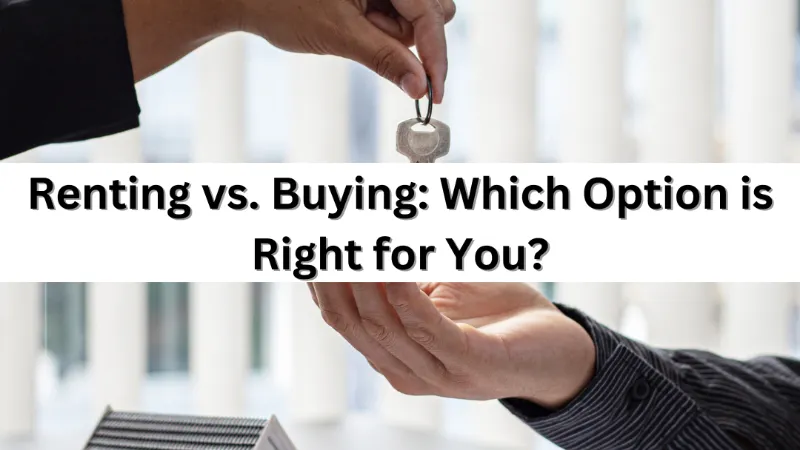




Renting vs. Buying: Which Option is Right for You?
When it comes to securing a place to live, one of the biggest financial decisions you'll make is whether to rent or buy a home. Both renting and buying come with their own sets of advantages and drawbacks, and the right choice depends on several personal factors. In this guide, we will explore the pros and cons of renting versus buying, and help you determine which option might be best for your lifestyle, financial goals, and future plans.
Renting provides the flexibility to move without the long-term commitment of owning property. This is ideal for individuals who relocate frequently for work or enjoy exploring different neighborhoods.
Compared to buying a home, renting typically involves lower upfront costs. You only need to cover a security deposit and the first month's rent, unlike purchasing, which requires a significant down payment and closing costs.
One of the biggest advantages of renting is that the landlord is responsible for property maintenance. From plumbing repairs to roof replacements, these expenses are usually covered by the property owner.
Many rental properties, especially luxury apartments, offer access to premium amenities such as pools, gyms, and communal lounges, without the added expense of maintaining them.
When you rent, your monthly payments go towards your landlord's equity, not yours. Over time, this means you miss out on the opportunity to build wealth through property ownership.
Renters often face restrictions on making significant changes to the property, such as painting walls or renovating rooms.
Unlike fixed mortgage payments, rent can increase over time, sometimes significantly, depending on market conditions and landlord decisions.
One of the primary advantages of buying a home is the ability to build equity. As you pay down your mortgage, you increase your ownership stake in the property, which can be a significant financial asset.
Homeownership offers long-term stability. Unlike renting, where you may have to move due to lease termination or rent hikes, owning a home gives you full control over your living situation.
When you own a home, you have the freedom to renovate and decorate as you wish. You can truly make the space your own without needing landlord approval.
In many areas, real estate appreciates over time. This means that your home could increase in value, providing a return on your investment when you decide to sell.
Buying a home involves substantial upfront costs, including a down payment, closing costs, and various fees. These expenses can be a significant barrier for first-time buyers.
Homeowners are responsible for all maintenance and repair expenses, which can add up quickly. From minor fixes to major renovations, these costs are unavoidable.
Owning a home ties you to a specific location, making it harder to relocate quickly. Selling a property can be a time-consuming and costly process.
While property values generally rise over time, real estate markets can fluctuate. There's always a risk that your home's value may decrease, affecting your investment.
Evaluate your financial health, including savings, income stability, and credit score. Renting may be a better short-term option if you lack the funds for a down payment.
If you value mobility and flexibility, renting might be more suitable. However, if you're planning to settle down and invest in a long-term asset, buying could be the better choice.
Real estate market trends can greatly impact the decision. In some areas, it may be more affordable to buy than rent, while in others, renting could be the smarter financial move.
If you plan to stay in one location for a long time, buying often makes more sense. Renting is generally better for short-term stays.
The decision to rent or buy a home is a highly personal one, influenced by your financial situation, lifestyle preferences, and future goals. Renting offers flexibility and lower upfront costs, while buying provides stability and the opportunity to build equity. Carefully assess your priorities and run the numbers before making this significant life decision.
If you're unsure about the right path to take, consult with a real estate professional who can provide guidance tailored to your unique circumstances. Reach out to our specialists at Rathiglobalrealty.com or call us at +91 77-9700-9700.
Give your Comments